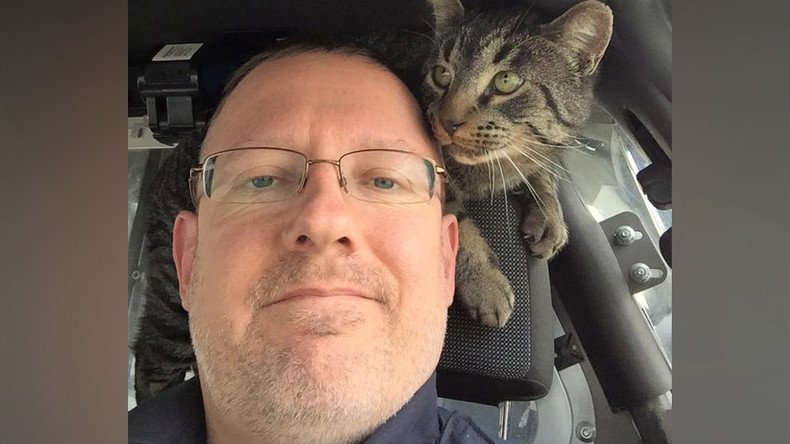‘Bigger than yourself’: Small Minnesota town police chief shares message of peace

A day after national protests over the police-involved deaths of Alton Sterling and Philando Castile, and the shocking attack on 12 officers in Dallas, a police chief from Kenyon, Minnesota shared a message of humility and peace.
“Thoughts of Police Chief Lee Sjolander...” began the post on the Kenyon Police Department’s Facebook page, Friday. The message, which went viral, recommended thoughtfulness and peace, arguing “it is not us vs. them.”
Nearly 26,000 Facebook users like the department’s page, despite the town it serves only having 1,833 residents.
Chief Sjolander’s post was an imaginary example of what he would say at roll call, the time when police supervisors take attendance and get their officers ready for the day’s work.
“We have calls for service that we need to respond to. We have a grateful public that needs us, we have responsibilities,” he wrote. “Yes, there are those out here who do not like us, or what we represent. It's been that way long before I or you became officers, and it will be that way long after we're gone.”
Police chief pens passionate letter to fellow officers after Dallas shooting https://t.co/zLU6yYrilu
— Rssmani (@rssmanii) July 8, 2016
The post had received over 2,500 likes, 835 shares and over 128 comments by Friday evening.
It stated his expectations of officers and a request they be met.
”We expect you to be kind, we expect you to be fair, we expect you to be professional, and we expect you to do the best you can on every call for service,” he wrote.
“We expect you to know the difference between the letter of the law, and the spirit of the law, and when to use your best discretion.”
Sjolander added, “We expect you to leave people better than you found them when you can, and never take away someone’s dignity,” and “We expect you to be well-trained, and to know when, and when not to apply your training.”
He talked about the police profession as a public service, calling on officers “to be part of something bigger than yourself.”
“I hope you chose this calling because you love having a front row seat into the lives of people, love problem solving, and know that what you do makes your family and friends proud,” Sjolander wrote.
“I expect you to patrol your areas with a smile on your face, kindness in your heart, calmness in your soul, and a wave to those you see. I expect you to get out of your patrol car and visit. I want you to listen to the compliments, the concerns, take them all in, and remember, it's not "us vs. them," and signed off using his first name, Lee.
Cop shoots black man dead in Minnesota mere day after Alton Sterling shooting death (GRAPHIC) https://t.co/vODUCnYTXk#FalconHeightsShooting
— RT America (@RT_America) July 7, 2016
This has not been the first time that Sjolander has hit news headlines. He was invited to attend a White House briefing in June for the Task Force on 21st Century Policing. The briefing offered recommendations to help communities and law enforcement agencies across the country strengthen community trust and collaboration while aiming to reduce crime.
Sjolander was hoping to share the necessity of treating and providing resources to law enforcement officers who struggle with a mental illness as well as different communities that quietly suffer because of associated stigma. Sjolander told the Post-Bulletin that he suffers from post-traumatic stress disorder.
“I’m a huge advocate for mental health,” he told the Minnesota paper. “We really need to start taking care of our populations with mental health illnesses, getting them more resources and taking better care of them in a polite, calm manner. That’s what we need. We have too many people in our legal system who should be in our medical system.”












